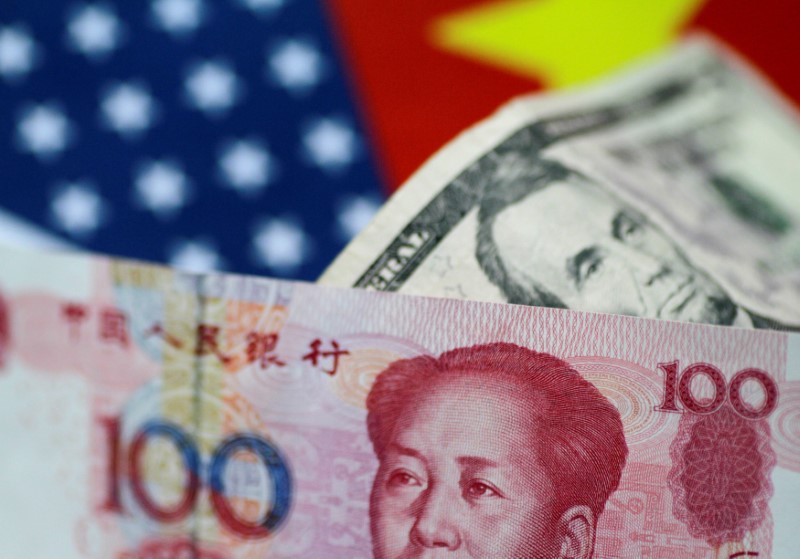Investing.com– Most Asian currencies moved in a tight range on Friday, while the dollar steadied after a strong week as markets awaited more economic signals from key U.S. payrolls data due later in the day.
The dollar was headed for a third straight positive week, tracking a bounce in Treasury yields as investors braced for a potentially strong reading on the jobs market.
The and fell 0.1% each in Asian trade, but were up nearly 1% for the week.
Traders also remained largely risk-averse after Fitch cut the U.S. sovereign rating earlier in the week. This pressured most Asian units, while spurring flows into the dollar.
The was flat on Friday, while the rate-sensitive lost 0.5%.
The fell 0.2%, while the led losses across Southeast Asia with a 0.4% decline.
The was among the few outliers for the day, rebounding 0.3% from steep losses earlier in the week.
Nonfarm payrolls awaited for more Fed cues
Markets were focused squarely on data for July, due later on Friday. While analysts expect payrolls to have eased slightly after a substantial drop in June, data released earlier in the week heralded a potentially stronger-than-expected official reading.
Strength in the job market gives the Federal Reserve more headroom to keep raising interest rates, especially given that the central bank is also targeting some cooling in the labor market to help curb inflation.
Higher interest rates bode poorly for Asian markets, as the gap between risky and low-risk yields narrows.
Chinese yuan inches higher amid more stimulus promises
The rose 0.1% on Friday, following a stronger-than-expected daily midpoint fix from the People’s Bank.
The currency was also somewhat supported by top government officials promising more measures to boost local consumption and economic activity in the coming months.
But officials once again offered no concrete details on the planned stimulus measures, souring investor optimism over a potential economic recovery in the country.
China’s central bank also said that it will use its liquidity measures flexibly in order to support an economic recovery in the country. But any measures to further loosen Chinese monetary policy are likely to weigh on the yuan.
Read the full article here
